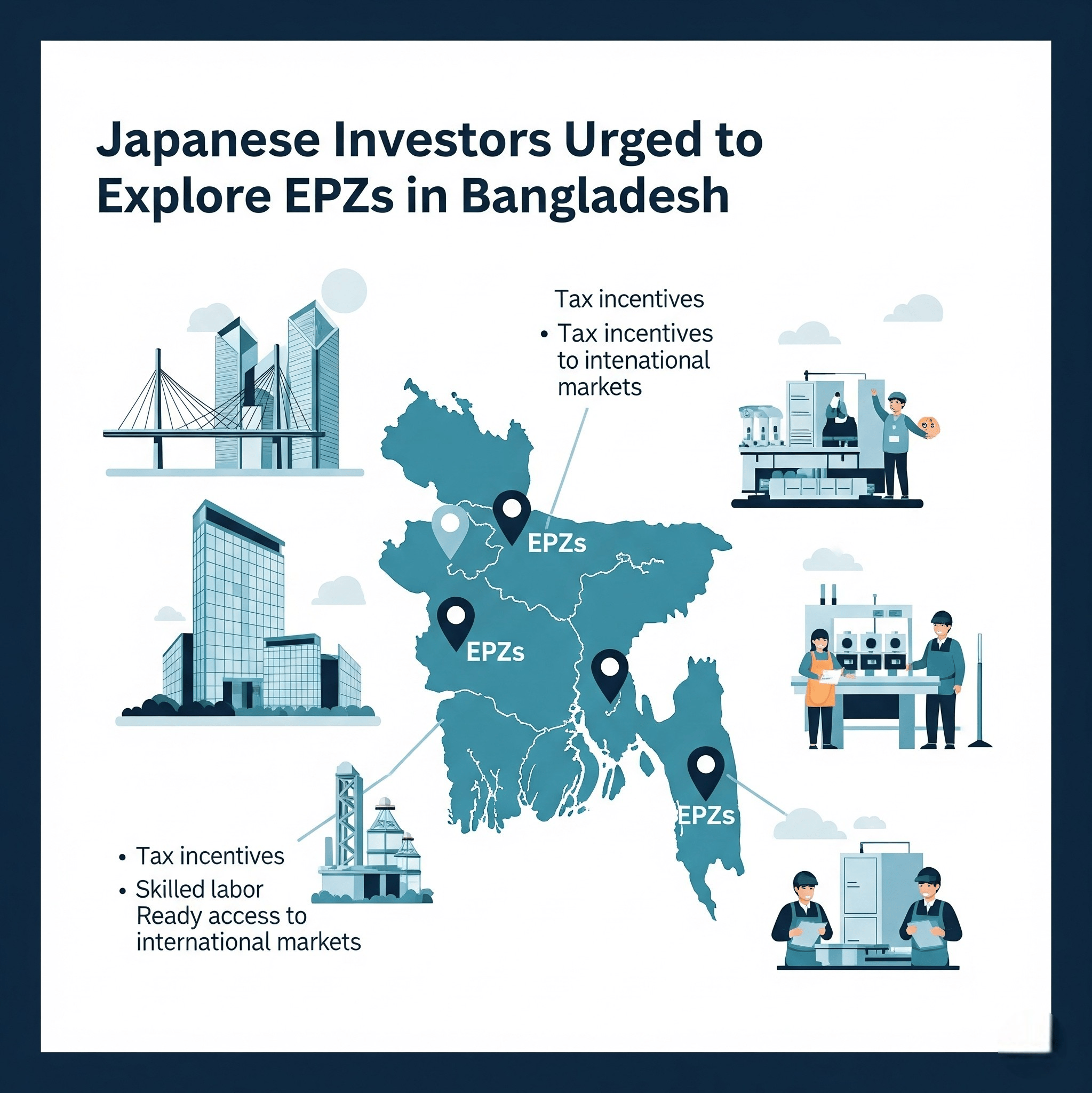Bangladesh recently invited Japanese investors to consider its Export Processing Zones (EPZs) as prime investment sites. According to a report by The Financial Express, officials highlighted the growing potential of EPZs for Japanese businesses. This news blends two sectors well: Trade (Core) and Industry (Other). EPZs are special industrial areas offering tax breaks, streamlined regulations, and ready facilities. These benefits make them attractive to foreign firms, including Japanese investors looking to expand in South Asia. At a Tokyo meeting, Bangladesh’s Commerce Adviser, Sk Bashir Uddin, invited leading Japanese companies—such as Mitsui, Marubeni, Mitsubishi Heavy Industries, and others—to explore opportunities in EPZs. He highlighted that Bangladesh now trades about US$4 billion annually with Japan, and more than 350 Japanese firms already operate in the country. The adviser pointed to the growing sophistication of the workforce and urged Japanese investors to set up manufacturing, packaging, and tech-related operations in EPZs. EPZs like Ishwardi have seen significant investment growth. By May 2025, EPZs and Economic Zones had attracted around US$480 million from 32 companies, including Chinese firms, building factories and creating hundreds of jobs. The Ishwardi EPZ alone welcomed a new packaging manufacturing plant, showing that EPZs can support diverse industries—from apparel and electronics to logistics and food processing. These zones are not just simple industrial parks—they spark growth across supply chains. If Japanese companies invest in these EPZs, it will boost related sectors like shipping, land transport, and warehousing. That helps smaller firms flourish, especially in Industry, which thrives on global value chains. Investors can tap into rising exports too. Data shows EPZ exports achieved a 22.4% growth in the first half of FY25, any reaching US$4.13 billion. This shows that EPZ-based businesses benefit from strong demand overseas, including in Japan. For Bangladesh, drawing in more Japanese capital means more jobs, better tech, and stronger global links. The government continues to improve EPZ facilities and ease policy rules. More ready factories and one-stop services are being offered. If Japanese investors act on this offer, they could find a win-win situation. Companies gain cost-efficient, export-ready units; Bangladesh earns more skilled jobs and foreign investment. That matches the nation’s goal to become a regional manufacturing hub. Overall, the invitation to Japanese investors is a smart move that strengthens Trade and boosts Industry. By expanding engagement in EPZs, Bangladesh can grow its global exports, build new infrastructure, and deepen economic ties with Japan.
Japanese Investors Urged to Explore EPZs in Bangladesh
52


